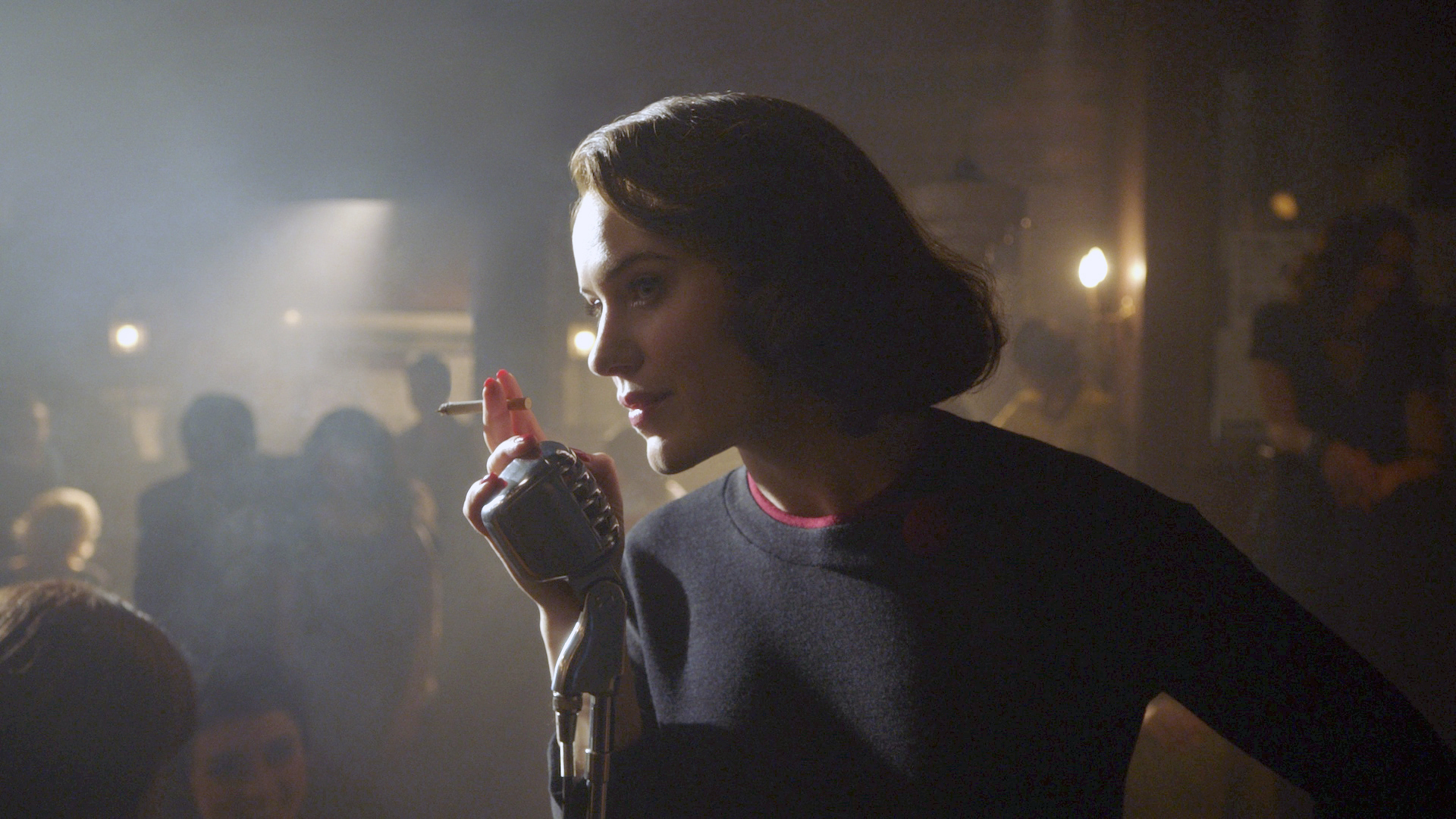What to Watch Verdict
After two years away it takes some time to get into the swing of this premiere, but it is very good to escape into the world of 'Mrs. Maisel' again.
Pros
- +
The impressive scale of the various sets
- +
Rachel Brosnahan is magnetic
- +
The audience gets caught up without too much hand-holding exposition
- +
Intimate one-on-one conversation
Cons
- -
The sequence on the Wonder Wheel is too long
- -
Some moments feel forced and contrived
This post contains spoilers for The Marvelous Mrs. Maisel season 4 episode 1, "Rumble on the Wonder Wheel."
More than two years have passed since we saw Midge Maisel (Rachel Brosnahan) standing on an airport runway after she got canned from Shy Baldwin’s (LeRoy McClain) European tour for being a little too revealing about the singer's personal life on stage. Season 4 picks up with Midge in the immediate aftermath as she comes to terms with this huge career setback and the larger financial implications of this firing. Settling back into the rhythm of the dialogue and catching up with the various obstacles takes a few beats, but this is a welcome return by The Marvelous Mrs. Maisel.
The season 4 premiere, "Rumble on the Wonder Wheel," is bookended with a fired-up Midge performing at the Gaslight Cafe, back in her element. Cutting from the audience's laughter to Midge spiraling in the back of a cab is quite the juxtaposition though, and a reminder she is not infallible. Yes, she is an inherently confident person, but this doesn’t stop the dread from creeping in.
If the oscillating between tears and hysterical laughter wasn’t clear that she isn’t taking her firing well, then the moment she begins to throw her new ivory suit and matching hat out of the taxi window ensures everyone is on the same page.
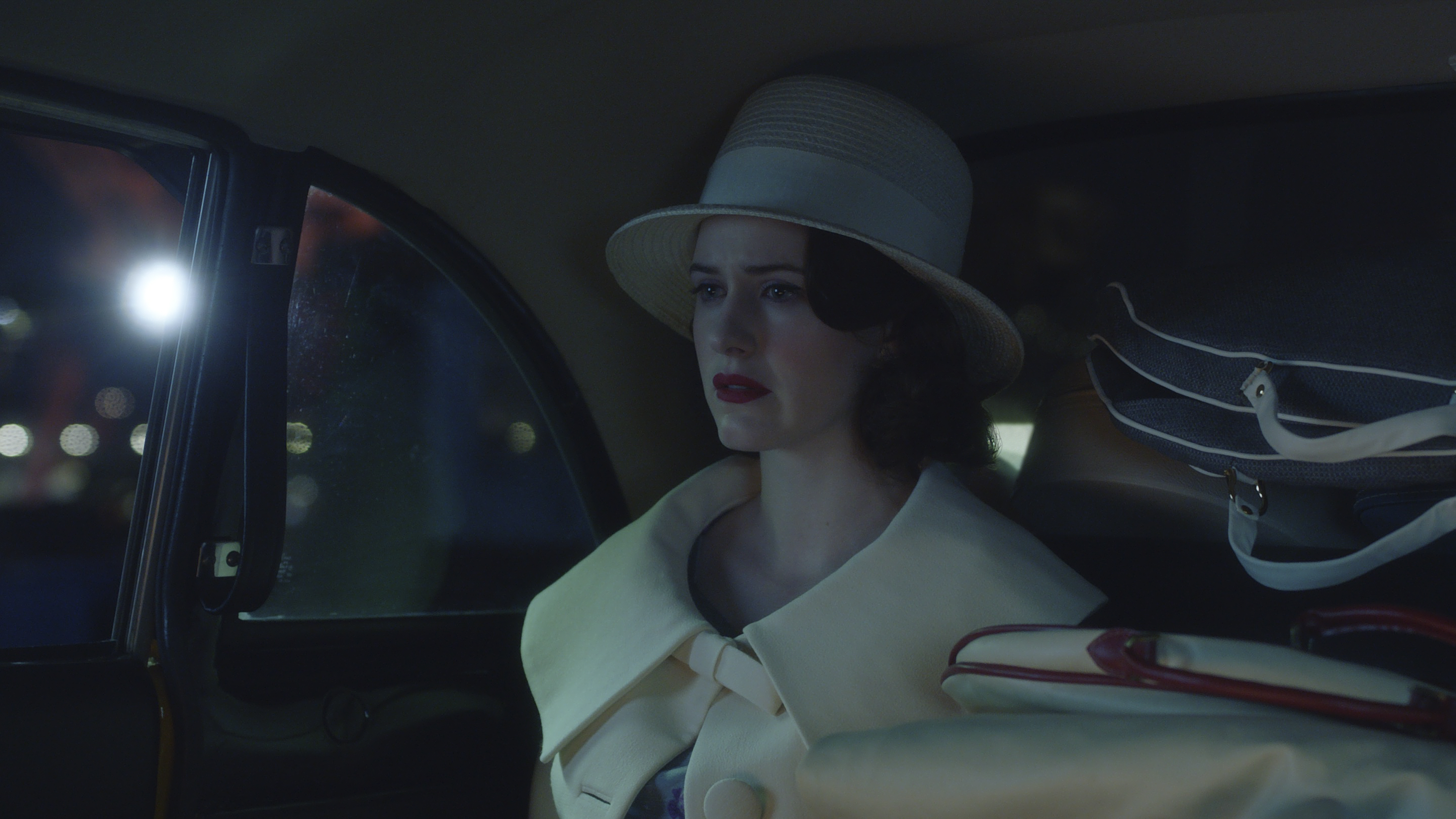
Things continue to escalate — Midge continues shedding clothes down to her underwear, screaming how much she hates everything and everyone; a callback to the pilot episode after Joel (Michael Zegen) left her (though she's sober this time). Hitting the cab with a branch seems unnecessary, but the meltdown matches her worry that her career is dead.
“I thought we were friends,” she utters about Shy before her manager Susie (Alex Borstein) reminds her this is business. Midge snaps back to reality, gathers her discarded suits and directs the cab to the Gaslight because she can’t face her overbearing family until morning.
Even though Rachel Brosnahan is consistently magnetic in this role, Midge’s tantrum won’t endear her to anyone who already bristles at this character’s bratty tendencies. Not to mention the fact she made allusions to Shy's sexuality and America in 1960 is not a safe place for a Black gay man, so it is hard to feel sorry for Midge when weighing up the power of her words — even if she tries to dismiss it as a nothing more than a joke.
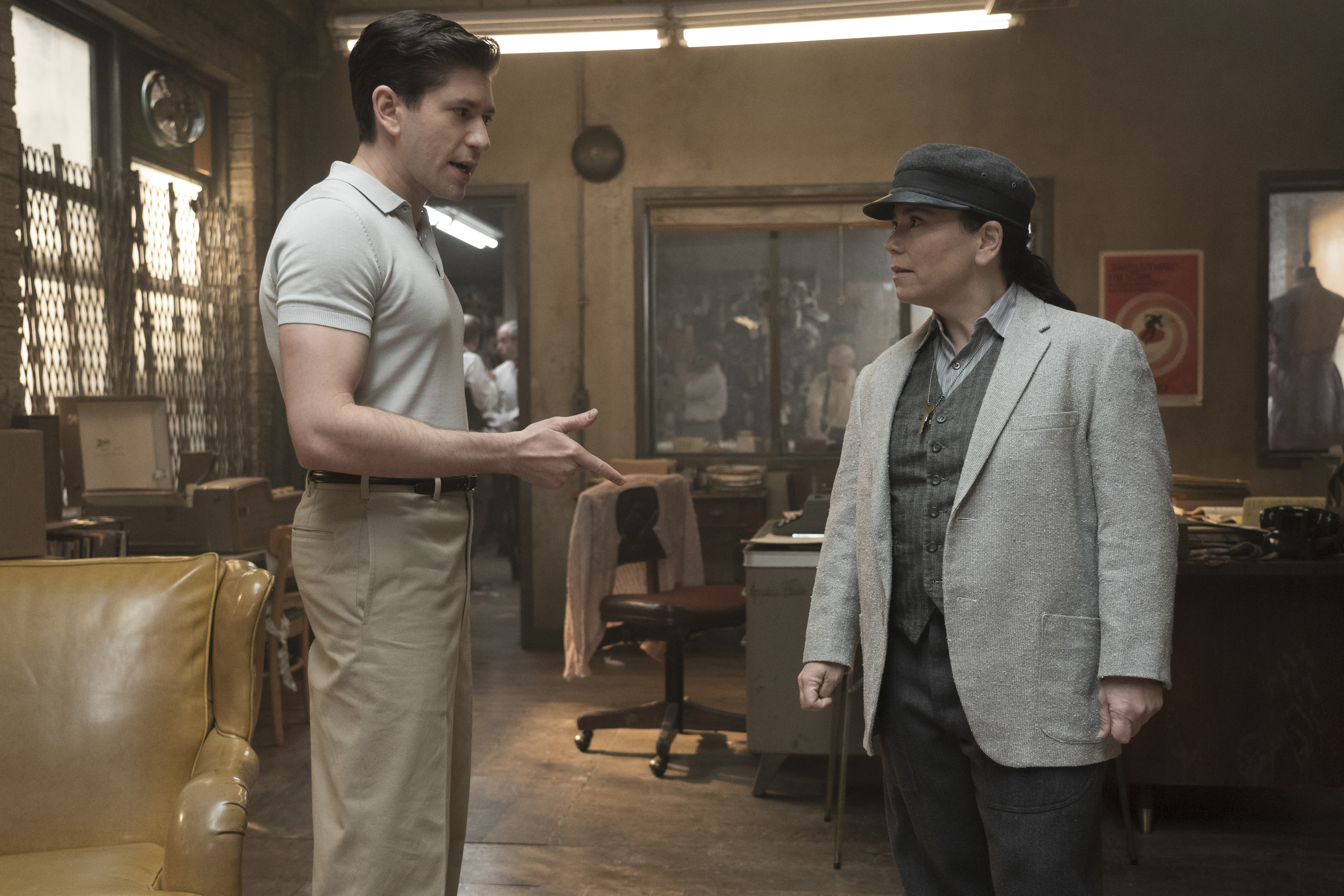
A lot of this premiere succinctly reminds the audience of what happened last season without resorting to clunky exposition. This includes Susie losing all of Midge’s money and the small (okay, large) fraud she enacted with her sister. Burning down her childhood home is a get-rich-quick scheme that hits some snags when the insurance company has some follow-up questions.
Out of desperation, Susie turns to Joel. While there is no love lost between the two, she implicitly knows Joel has Midge’s back. It is during this back-and-forth that creator Amy Sherman-Palladino's dialogue rhythms fall back into place even if it feels like the pair are going around in circles.
One thing Midge's brief implosion underscores is the scale of the setback, but she is not one to dwell in self-pity. She quickly rallies the following morning when assessing what savings she has. Unfortunately, she is unaware of Susie squandering it all away.
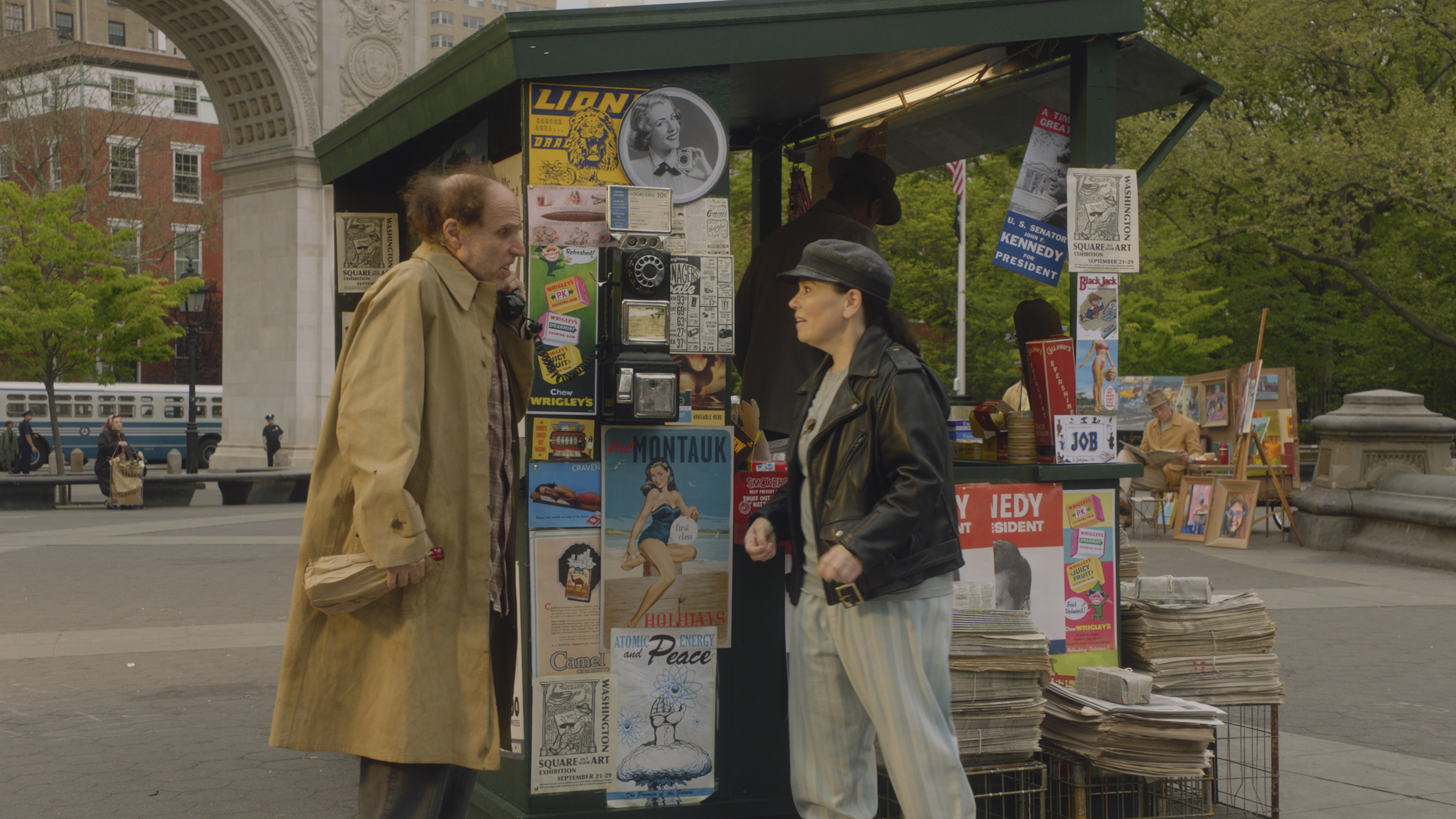
Another season 3 finale moment causing consternation stems from Midge buying her old apartment back from Joel’s father, as her contract with Shy was a significant reason why Moishe (Kevin Pollak) agreed to this deal. Returning to the Upper West Side building where we first met Midge is important to her and she needs her savings to keep her ex-father-in-law sweet with the repayments.
Breaking the news to her family that she isn’t in Europe coincides with the trip to Coney Island to celebrate her son Ethan’s birthday. It isn’t actually his birthday but this is a convenient date for both sets of his grandparents. This gag is doing a lot of kooky heavy lifting, but it's hard to ignore the contrived set-up.
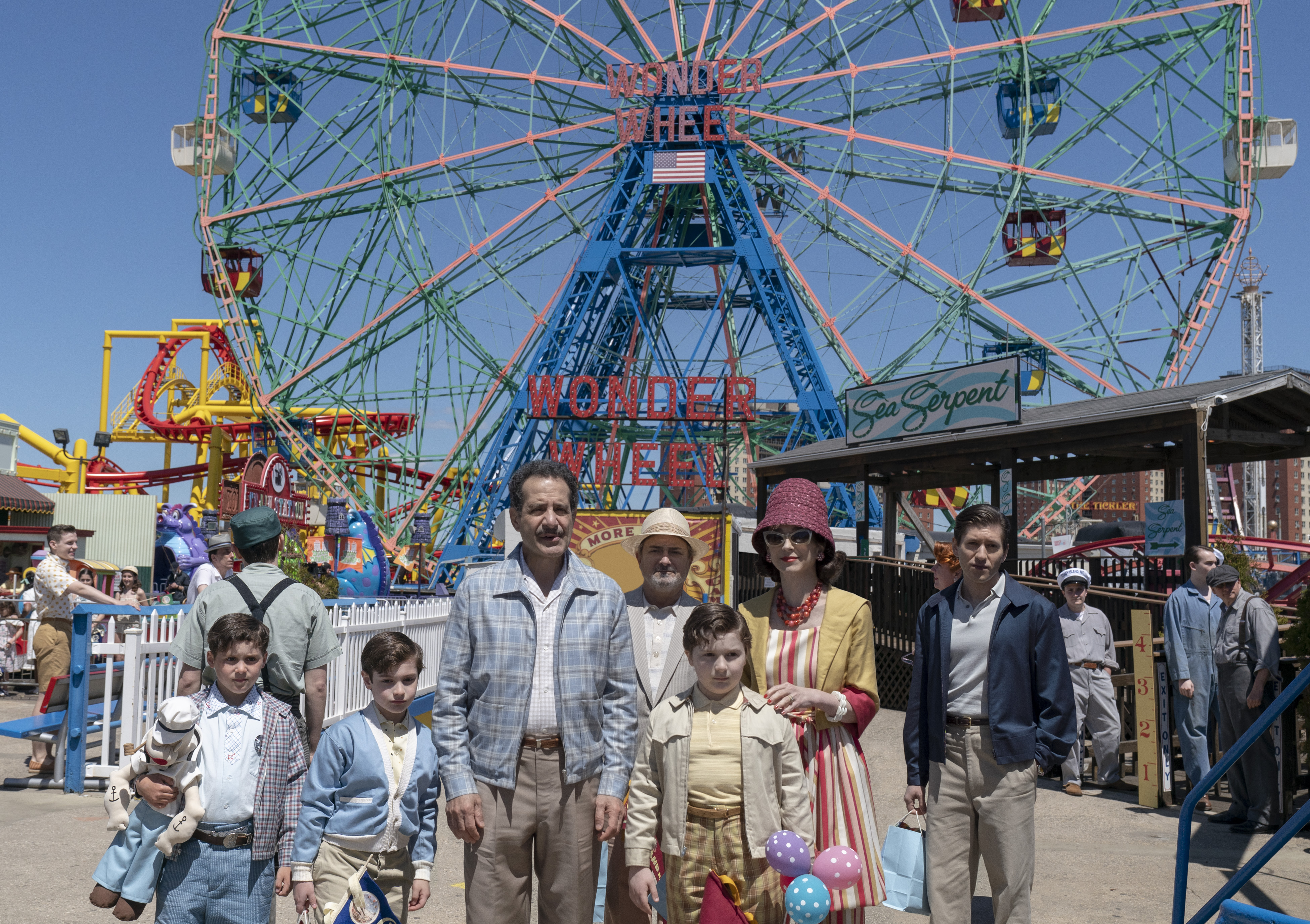
Midge probably should’ve waited until after Coney Island to spill this news, as it feels like everything was reverse-engineered so the Weissman and Maisel clans could yell at each other from their various Wonder Wheel pods. It fits the playful elements of the series — while also ticking the impressive production design boxes — but it goes on for too long.
One-on-one interactions resonate more than these outlandish set-ups and also give us the opportunity to tune into the musicality of Sherman-Palladino’s script. Susie and Joel’s conversation is one such example, but it is Susie and Midge's intimacy and shorthand that best achieves this comedy-drama balance.
In the familiar Stage Deli (in which many career brainstorms have taken place), Midge rails against a newspaper critic who has called her a “giggle girl.” The hit piece also insinuates she has slept her way to success thanks to relationships with men like Lenny Bruce (Luke Kirby).
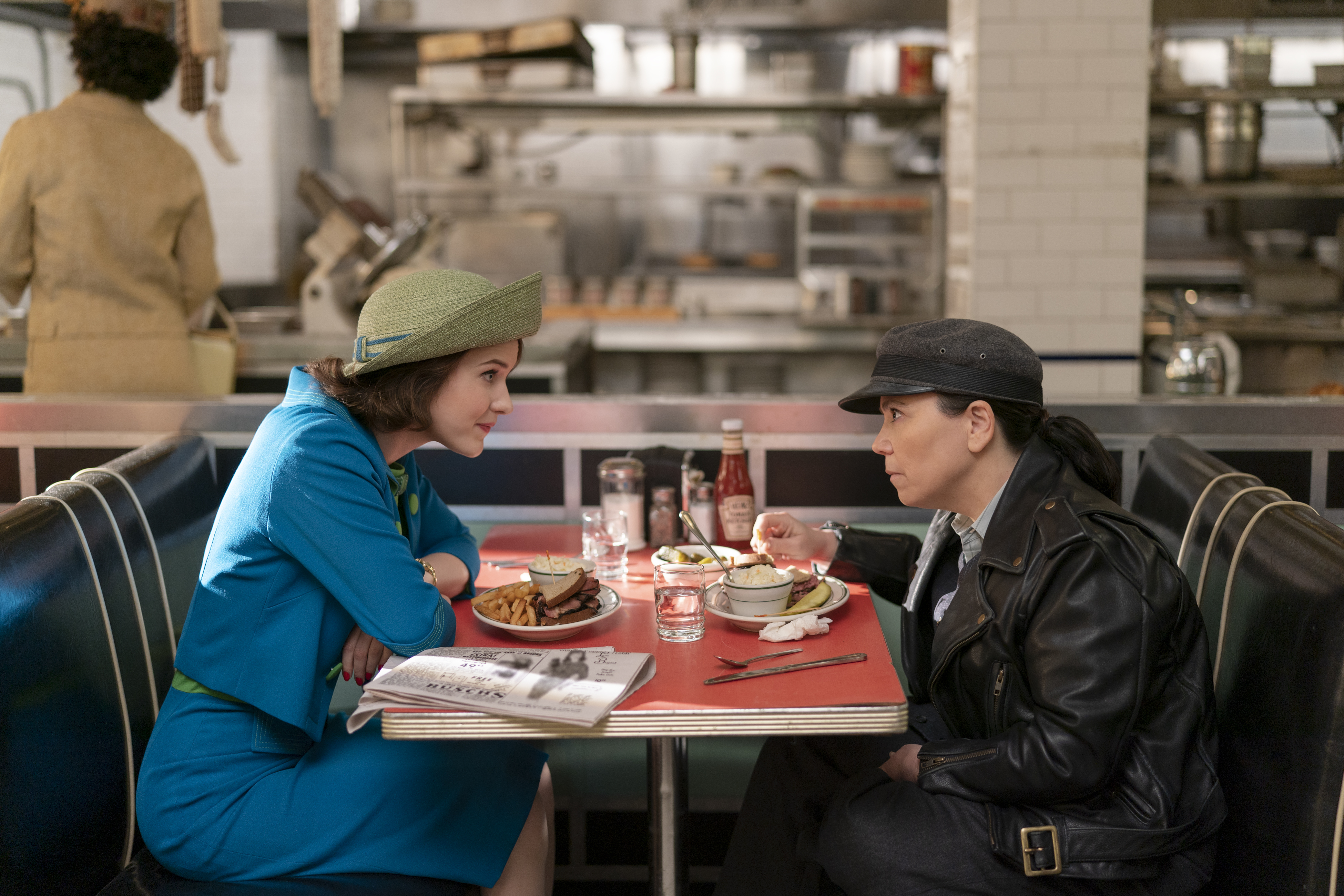
While he sadly doesn’t appear in this opener, Lenny is very much on Midge’s mind because she wants a trajectory like his. “I want to be me every time I walk on stage,” is what she asks Susie to make happen. It is a lofty goal, but not completely delusional considering everything they have achieved in the two years since Midge launched her comedy career.
In the Gaslight, Midge is already authentically herself. After her career rock bottom moment, it is vital that the comedian gets an uplifting reaction to her set. Midge is a long way from the European cities she expected to be performing in, but all is not lost — her dream has not died the death she described during her post airport meltdown. This episode also feels like Midge is shedding the last vestiges of the 1950s as she asserts some semblance of independence amid the obstacles, signaling The Marvelous Mrs. Maisel is ready for the new decade.
Emma Fraser spends most of her time writing about TV, fashion, and costume design; Dana Scully is the reason she loves a pantsuit. Words can also be found at Vulture, Elle, Primetimer, Collider, Little White Lies, Observer, and Girls on Tops. Emma has a Master’s in Film and Television, started a (defunct) blog that mainly focused on Mad Men in 2010, and has been getting paid to write about TV since 2015. It goes back way further as she got her big start making observations in her diary about My So-Called Life’s Angela Chase (and her style) at 14.
